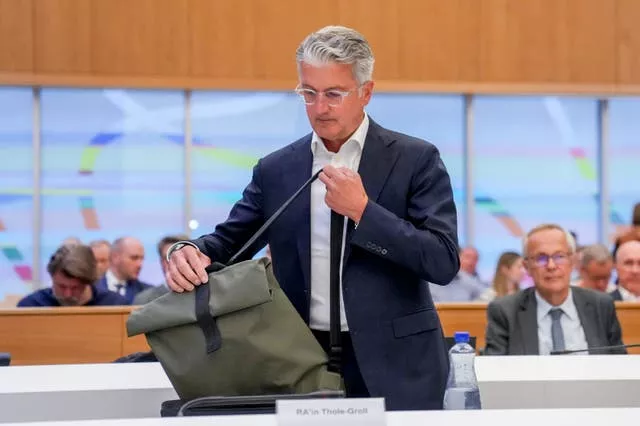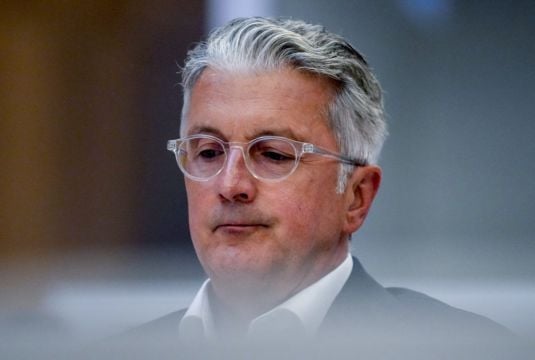A German court found ex-Audi boss Rupert Stadler guilty of fraud in connection with the carmaker’s diesel emissions scandal, making him the highest-ranking executive convicted over cars that cheated on emissions tests with the help of illegal software.
The Munich regional court handed Stadler a suspended prison sentence of 21 months and ordered him to pay a large fine as part of an agreement between his lawyers, the judge and prosecutors after he pleaded guilty last month, German news agency dpa reported.
The former head of Volkswagen’s luxury division admitted wrongdoing and regret for his failure to keep rigged cars off the market even after the scandal had become public knowledge.

Three lower-ranking managers also took plea deals in the two-and-a-half-year-long trial in Munich.
Stadler had been charged with fraud and false certification by prosecutors who said he let cars with rigged software be sold even after the scheme was uncovered by the US Environmental Protection Agency in September 2015.
The scandal cost Volkswagen more than 30 billion US dollars in fines and settlements and saw two US executives sent to prison.
It pushed the entire car industry away from reliance on diesel engines, which had been almost half the auto market in Europe, and helped accelerate the shift to electric vehicles.
Stadler was detained in 2018 and held for four months.
The 60-year-old resigned as Audi chief and a member of the Volkswagen board later that year and has since paid the company some 4.1 million euros in damages for failing in his oversight duties.
His boss at the time, former VW chief executive Martin Winterkorn, has been charged by US and German authorities, but Germany does not generally extradite its citizens to countries outside the European Union.

German proceedings against Winterkorn also have stalled because he is in poor health.
Four other cases against former VW managers are ongoing in Braunschweig.
A spokesman for the Munich court, Laurent Lafleur, said Stadler’s guilty plea together with the extensive evidence heard during the trial could play an important role in other cases.







